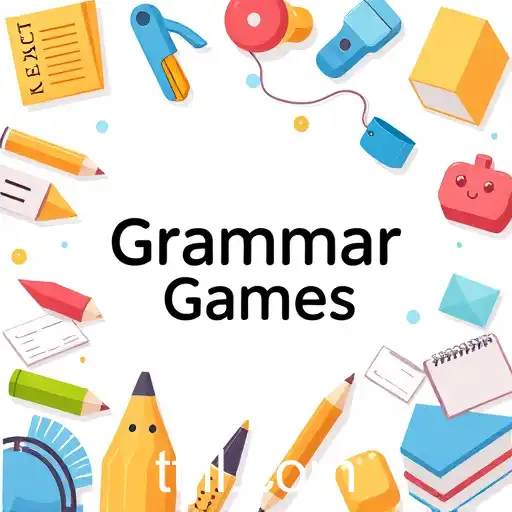ttjl | The Impact of Grammar Games on Language Learning

In the burgeoning world of online education, grammar games have carved out a significant niche as innovative and effective tools for language learning. These games, categorized under 'Grammar Games' on various educational platforms, leverage interactive technology to strengthen users' linguistic skills in an engaging manner. Whether you are a native speaker looking to refine your grammatical prowess or a non-native speaker eager to learn the intricacies of a new language, these games offer a unique solution that combines education with enjoyment.
The concept of 'Grammar Games' encompasses a wide array of activities designed to bolster learners' understanding of grammar. These games range from basic sentence structure exercises to complex punctuation challenges, each designed with the goal of improving a player's grasp of grammatical rules. By integrating game mechanics such as point scoring, timed challenges, and competitive elements, these platforms enhance the learning experience and foster motivation.
Websites offering these grammar games often allow users to practice at their own pace, providing tailored feedback and progress tracking. This self-paced learning is particularly beneficial for those balancing education with other commitments. Given the diversity of games available, learners can focus on specific areas they struggle with, be it verb conjugations, syntactic nuances, or advanced writing techniques.
Moreover, these games use of multimedia elements such as videos, animations, and instant quizzes, makes the learning process dynamic and adaptable. Some even include multiplayer options, encouraging collaboration and communication among users worldwide, thus not just teaching grammar but also developing communication skills in real-time contexts.
Researchers and educators continue to explore the potential of these tools. Studies have shown that learners using grammar games demonstrate increased retention of grammatical concepts and a higher degree of linguistic confidence. This is particularly relevant in classroom settings, where such games can supplement traditional teaching methods and provide a nuanced approach to language education.
In conclusion, 'Grammar Games' represent a merging of education and entertainment, offering versatile and accessible pathways for improved language learning. As the digital education landscape evolves, the role of 'Grammar Games' is set to expand, providing increasingly sophisticated methods for mastering the complex world of grammar in a fun and engaging manner.



